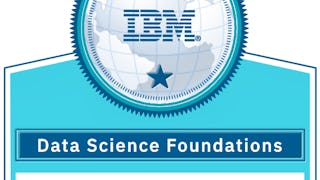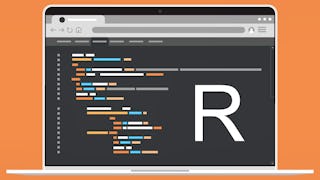We reside in a world experiencing an explosion of information, with a rapid and exponential growth of data. This surge in data captures increasing interest across various fields. Data science involves the gathering of extensive data and the fusion of domain expertise, programming skills, mathematics, and statistical knowledge to derive meaningful insights. Given the breadth and depth of data science, this course aims to furnish you with a comprehensive theoretical foundation and framework to initiate your journey in this field. "Data" permeates every aspect of data science. The course is divided into five parts, each centered around core topics related to "data". The initial part introduces data ethics, outlining the ethical issues surrounding data collection, usage, and reporting. The second part delves into data collection, acquisition sources, and data structures. The third part focuses on cutting-edge research in Data Science, immersing you in the realm of data science. The fourth part acquaints you with basic data processing using programming, specifically in R, the prevailing data analytics tool. Here, you will gain familiarity with R fundamentals, execute basic data wrangling tasks, develop an understanding of data storage and management, and gain experience in data visualization. The fifth part of the course imparts fundamental knowledge of probability and statistics, preparing you to move to the next stage of exploration.


了解顶级公司的员工如何掌握热门技能

该课程共有6个模块
What is data science and what activities and topics will have in data science? This module will answer the questions first, and then come to one of topics-data ethics. This module will provide a big picture about the data ethic issues within data science and focus on two critical data ethics topics, Informed Consent and Data Ownership. In this module, you will learn to define, explain, and discuss those two specific topics and identify ethical and unethical activities related to them.
涵盖的内容
12个视频8篇阅读材料2个作业1个讨论话题
In this module, we will focus on three important concepts in data ethics: Privacy, Transaction Transparency, and Anonymity. These concepts often intersect and influence each other. In this module, we will explain and describe each term and provide examples to illustrate how these concepts are applied in the field of data science. Special attention is given to de-identification for privacy protection in the module.
涵盖的内容
10个视频3篇阅读材料2个作业
In this module, we will specifically discuss two important concepts: Data Validity and Algorithmic Fairness. The accuracy and bias of input data is related to data validity, which strongly influences the outcomes and fairness of algorithms. In this module, we will explore how and why inappropriate and unethical data validity can result in unfairness.
涵盖的内容
8个视频2篇阅读材料2个作业1次同伴评审
Unethical activities during research design, data collections and data analysis usually lead to societal consequences. However, even if the whole procedure about data is ethical, there may still be unintended consequences due to the development of new technology.In this module, societal consequences in data science are discussed and the code of ethics in research and environmental sciences are outlined to ethically guide potential behavior of data scientists.
涵盖的内容
6个视频3篇阅读材料1个作业1次同伴评审
This module focuses on the initial phase of a data science project, which involves obtaining data. Specifically, the module covers the following topics of data acquisition: identifying and describing data sources, sampling techniques for data collection, and the impact of sampling bias on research. Through these discussions, the module aims to provide a comprehensive understanding of the initial steps involved in obtaining data for a data science project.
涵盖的内容
7个视频2篇阅读材料
This module is dedicated to exploring various concepts about data, such as file formats for delivery and sharing, data types for variables’ basic nature and characteristics, and data structures for data manipulation and data analysis. The concepts of data files, data types and data structures, common data types and structures in programming languages, and specifically data structures in R, are covered.
涵盖的内容
8个视频2篇阅读材料2个作业
攻读学位
课程 是 Ball State University提供的以下学位课程的一部分。如果您被录取并注册,您已完成的课程可计入您的学位学习,您的学习进度也可随之转移。
位教师

从 Data Analysis 浏览更多内容
 状态:免费试用
状态:免费试用 状态:免费试用
状态:免费试用Duke University
 状态:免费试用
状态:免费试用
人们为什么选择 Coursera 来帮助自己实现职业发展




常见问题
To access the course materials, assignments and to earn a Certificate, you will need to purchase the Certificate experience when you enroll in a course. You can try a Free Trial instead, or apply for Financial Aid. The course may offer 'Full Course, No Certificate' instead. This option lets you see all course materials, submit required assessments, and get a final grade. This also means that you will not be able to purchase a Certificate experience.
When you purchase a Certificate you get access to all course materials, including graded assignments. Upon completing the course, your electronic Certificate will be added to your Accomplishments page - from there, you can print your Certificate or add it to your LinkedIn profile.
Yes. In select learning programs, you can apply for financial aid or a scholarship if you can’t afford the enrollment fee. If fin aid or scholarship is available for your learning program selection, you’ll find a link to apply on the description page.
更多问题
提供助学金,

 中
中



